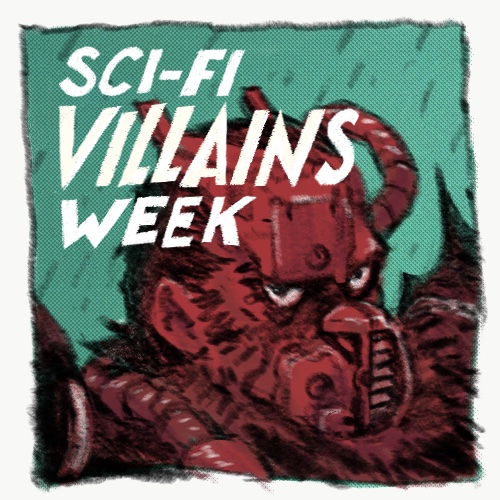If I say the word “Luddite,” you’re probably imagining someone who stubbornly refuses to get a smartphone. That’s what came to my mind, at least, until I took a peep at these first five pages of Harry “Hbomberguy” Brewis and Skutch’s short comic for Failure to Launch: A Tour of Ill-Fated Futures.

In space, no one can hear you scream — but that doesn’t stop an evil-doer from trying. This week, Polygon celebrates all forms of sci-fi villainy because someone has to (or else).
Failure to Launch is the newest crowdfunded anthology from Iron Circus Comics, featuring over 300 pages of short comics from dozens of creators, including Ryan North, Blue Delliquanti, and Evan Dahm, all telling “tales of what could have been, but wasn’t: planned utopias in space, wild inventions, attempts to improve society, robot pets, and predictions of armageddon.”
In Brewis and Skutch’s short, “The First Union,” they relate the historical story of the Luddites, one of earliest trade unions of the industrial era, and their (literally) legendary leader Ned Ludd. Ludd was a figure the Luddites adopted half as a joke — and that the titans of England’s textile factories adopted as their ultimate villain. History was written by the victors, and today his name is synonymous with bullheaded and shortsighted refusal to embrace the new and innovative.
“We end up with the idea some weirdos decided technology was evil and started hitting it with sticks,” Brewis, who penned the short comic, told Polygon via email, “which is so comically absurd this mental image becomes an easy comparison to use against criticism — If you think it’s ‘bad’ we stole millions of artists’ work and fed it into our computer so it can spit out art similar to theirs on command, you are a crazy person who is against progress, just like those guys.”
“‘Those guys,’” said Brewis, “were relatively educated people for their time who, correctly, saw the end of their way of life coming, and the new life the people creating it had in store for their workers. The writings of the Luddites are often unexpectedly hopeful about the future — maybe we can build a world where this technology means more to most people than a lifetime of poverty wages in a factory that wants to kill you.
“It’s weirdly comforting to me to see how little powerful people’s playbook has changed over the centuries,” wrote Skutch, whose art graces the pages of “The First Union.” “Their only tools are lies and violence.”
:no_upscale()/cdn.vox-cdn.com/uploads/chorus_asset/file/24413640/thefirstunion01.jpg)
Both writer and artist agreed that the capitalistic quest for automation without respect for the worker is still going today, just in different guises.
“The differences [between industrial automation and automation by machine learning] are what gives me hope that modern artists will make out better than the Luddites,” Skutch said. “What’s being sold with digital art is less the finished product of a digital artwork and more the illusion that one has created art. The Luddites were fighting the state over material goods which had important uses across the entirety of the economy. AI is selling the idea that anyone can receive the praise people get from making art without having to put any work in by, well, learning to draw […] Of course the other lesson the Luddites have given us is that direct action works and sledgehammers are surprisingly easy to come by.”
:no_upscale()/cdn.vox-cdn.com/uploads/chorus_asset/file/24413639/FAILURE_TO_LAUNCH_cover_art.jpg)
But Brewis notes that while sledgehammers can treat the symptom, they can’t touch the cause.
“We need the wider solutions offered by the Luddites themselves at the time, who thought about the potential good outcome of the industrial revolution — a world where mass-production works for everyone, not mostly for the people who own the factories. Forgive me for reaching for the ‘fully automated luxury communism’ button, but it is a very shiny button (and, of course, bright red).
“In a world where most artists were not struggling to make ends meet as it is, because all people’s basic needs were met (which isn’t impossible in the slightest), an AI making something using your work as an input would be close to harmless, if not fascinating in itself. Until we fix the world around it, this stuff and all its potential is doomed to be hated, recognised (correctly) as a thief of the work people do to survive.”
You can read the rest of “The First Union” and over two dozen other stories in Failure to Launch: A Tour of Ill-Fated Futures. The anthology is live on Backerkit now, and will remain so until Mar. 9 at 8 p.m. PST.
